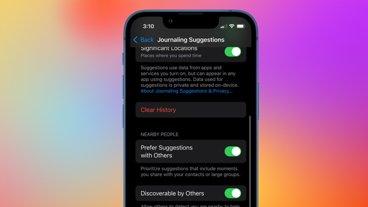Adobe fires back at Apple with open letter, new ad campaign
In a letter from Adobe cofounders Chuck Geschke and John Warnock, the chairmen asserted that a "single company" does not control the Web. They argued that Adobe's Flash technology is the market leader "because of the constant creativity and technical innovation" of the company's employees.
"We believe that Apple, by taking the opposite approach, has taken a step that could undermine this next chapter of the web — the chapter in which mobile devices outnumber computers, any individual can be a publisher, and content is accessed anywhere and at any time," they wrote.
Warnock and Geschke said that fragmentation of the Web into "closed systems" with content applications "behind walls" will result in the loss of the creativity and innovation that has made the Internet a global revolution.
"We believe that consumers should be able to freely access their favorite content and applications, regardless of what computer they have, what browser they like, or what device suits their needs," the letter reads. "No company — no matter how big or how creative — should dictate what you can create, how you create it, or what you can experience on the web."
Starting Thursday, Adobe began a new advertising campaign based on its beliefs, and intended to counter Apple's attack on Flash. Banners across the Web with the Adobe logo display in big, bold letters "We [Heart] Apple."
It continues: "What we don't love is anybody taking away your freedom to choose what you create, how you create it, and what you experience on the web." The ads feature a "Learn More" button that takes visitors to a page on Adobe's Web site that says "We [Heart] Choice" and links to the letter from Warnock and Geschke.
"We believe open markets that allow developers, publishers, and consumers to make their own choices about how they create, distribute, and access content are essential to progress," the promotional site reads. "That's why we actively support technologies like HTML4, HTML5, CSS, and H.264, in addition to our own technologies."
In addition to advertisements on major tech blogs like Engadget, Adobe has also bought a full-page print ad in Thursday's Washington Post.
Adobe's new campaign is in direct response to a letter posted by Jobs, Apple's co-founder, late last month. The lengthy note from Jobs, suggested Flash is a lingering relic from a dying era. The chief executive said that though the Web format was created for the PC, it "falls short" in the mobile era, dominated by low-power devices, touchscreen interfaces and open Web standards. He also said that Flash is responsible for most crashes in the Mac OS X operating system.
Almost immediately after the letter was published, Adobe CEO Shantanu Narayen responded by saying that Adobe views the world as multi-platform and open, while Apple does not. He also said that Mac OS X crashes involving Flash are the fault of "the Apple operating system," and said the suggestion that Flash drains battery life on mobile devices is "patently false."
Apple has embraced HTML5 in its mobile devices powered by the iPhone OS, which include the iPhone, iPod touch and iPad. The exclusion of Flash from Apple's mobile platform has been a matter of considerable debate, but many major Web sites have turned to HTML5 since the release of the iPad.
While Apple has kept Flash off of its Web browsers, it also recently changed the iPhone developer agreement to ban third-party tools that would allow software to be ported from other formats, like Adobe Flash, to native iPhone OS software. Jobs said such tools would result in substandard applications on the Apple-controlled App Store.
Apple's changes to its developer agreement could result in an antitrust inquiry from the U.S. federal government. The Department of Justice and Federal Trade Commission have reportedly begun looking into the matter after receiving complaints from developers and Adobe.
 Sam Oliver
Sam Oliver











 Chip Loder
Chip Loder
 Andrew Orr
Andrew Orr
 Christine McKee
Christine McKee
 Marko Zivkovic
Marko Zivkovic

 Mike Wuerthele
Mike Wuerthele
 William Gallagher
William Gallagher








